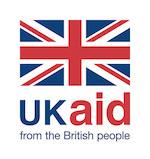In late 2018, the GSMA Mobile for Humanitarian Innovation (M4H) Fund team undertook due diligence visits with shortlisted applicants. The independent Fund Panel has since made its selection and grantees will be publicised mid-year. Ahead of this, the team has taken some time to reflect on what we learnt.
Round 2 was exceptionally competitive and we saw an unprecedented number of organisations attempting to use mobile technology to improve the lives of people affected by humanitarian crises. Thank you to all of the organisations who took time out of their already busy schedules to answer questions and explain their vision, opportunities and challenges, and congratulations to all those who went on to be shortlisted. The full application trends report is available online.
Over 62 per cent of projects were proposed to be launched in sub-Saharan Africa. In November 2018, we headed to Kenya, Rwanda, Uganda, and Zambia visiting several refugee settlements. Here are a few lessons learnt from due diligence in the region:
1. Opportunities for mobile money in humanitarian contexts are prolific – and we’re still at the start
The potential for humanitarian cash and voucher assistance (CVA) to have meaningful impact through mobile money continues to be a vision worth pursuing.
However, according to our discussions with applicants, significant challenges remain for organisations aiming to disburse aid via mobile money in East Africa.
Examples include:
- Lengthy contracting processes on both sides (humanitarian organisations and mobile operators)
- Challenges in finding and engaging with “the right contact” within a mobile operator
- The need to demonstrate value for money to donors, for example; putting pressure on humanitarian organisations to negotiate for bulk discounts
As a result, humanitarian organisations are sometimes working with aggregators who are small enough to quickly adapt internal systems and meet the complex needs of humanitarian organisations. This represents a missed opportunity for the mobile industry; the GSMA M4H programme will continue to work on bridging this gap in the coming years.
2. A gradual transition: “refugee” to “user” to “customer”
It was a specific ask of Round 2 that applicants aimed to test if commercial or semi-commercial business models could be viable in certain humanitarian contexts (e.g. where refugees/IDPs pay for services through mobile money). While we know the private sector cannot provide for all humanitarian needs, why shouldn’t refugees benefit from competitive, good quality goods and services, such as pay-as-you-go solar energy, water, financial services, clean cookstoves, micro-insurance, and rural connectivity?
While living conditions in refugee settlements remain difficult and challenging for most, we also saw vibrant and healthy marketplaces in all locations, particularly in areas where refugees have been living for more than two years. Although only a very small ‘sample size’, we spoke to people during our visits who anecdotally stated that they would be willing and able to pay for better quality services if they had access.
For start-ups or organisations attempting to plug this gap by providing vital services to refugees, the reality is that financial sustainability is really challenging, particularly in the short-term. A common barrier we saw was how to set appropriate pricing structures to ensure sustainability, while not excluding more vulnerable community members.
For example, entities might be able to operate on a cost recovery model as opposed to for-profit models, or use dual market approaches, serving more lucrative markets at the same time. Humanitarian organisations might benefit from wider support around pricing strategies appropriate to rapidly changing situations.
3. Innovate, iterate, and do no harm
It is possible to innovate ethically within humanitarian contexts, however careful planning is required and it is important that organisations abide by humanitarian principles, which is one reason we ask applicants to apply as part of a partnership. This helps bring different expertise – humanitarian, commercial, and technical – to the table.
While Silicon Valley-style innovation is rarely appropriate in these contexts, the principles of build, measure, learn, iterate are still highly relevant in the humanitarian landscape. It’s also important to apply ethical frameworks to ideas and adapt so we can ensure users (especially the most vulnerable) are at the heart of the innovation as it changes.
In particular:
- Innovating, iterating and doing no harm requires starting small and measuring impact regularly.
- For more on this topic see Ann Mai’s new book Innovation Impact.
- In order to test new models and willingness to pay it’s critical to take small risks in controlled environments (where possible) and ensure those risks align with humanitarian principles.
- Mobile technology can play a powerful role in supporting the analysis of such initiatives and lead to better outcomes and better accountability mechanisms for innovators.
We’ve been highly impressed with all applicants, and special thanks again to all those who supported the due diligence visits. Successful applicants will be announced in mid-2019.
As a new team, we’re excited to apply our learnings from Round 1 and Round 2 to the next funding phase, which will be launched in May 2019.
Follow us on twitter: @GSMAm4d #M4HInnovationFund.


